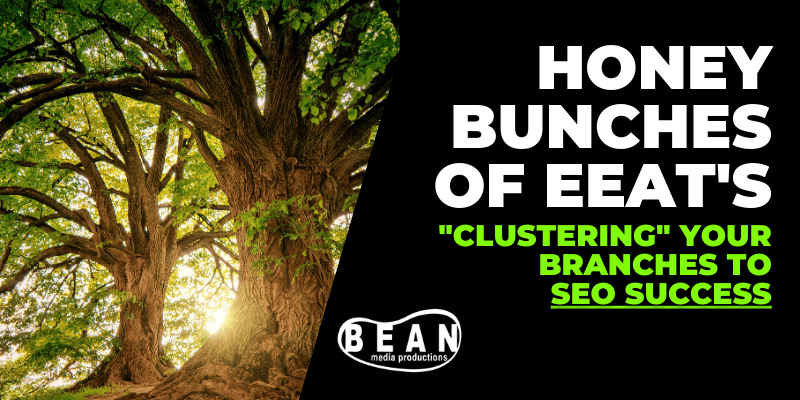Everyone know’s SEO is important. Google is always changing and that moving target provides a difficult bullseye to consistently hit, and that makes SEO challenging. You can go to any marketing agency’s page here in Buffalo and you’ll see a similar approach to what makes SEO important. We have always said, when partnering with an agency, find someone you enjoy working with, who can provide data-backed results. The results and relationship.
We have always taken a hands-on approach to developing content and used the power of the creative mind to outline SEO content plans to ensure we are steadfast in improving keyword search engine results, number of ranking keywords, and overall QUALITY organic traffic. With a background in video, we truly enjoy capturing the stories and specifics of a client, in order to differentiate and separate them from their competitors. This allows us to plan out how we will communicate what we find through the form of written content on the website that pleases both humans, and Google’s bots. Planning ahead is crucial, and one way to help get a plan together is to “cluster” your most conversion-worthy keywords.
Today on the blog we wanted to talk about “Clustering” and why it’s important to SEO today.
Don’t Stuff SEO Keywords.
Businesses aren’t always up to speed with the latest trends, but one factor business owners may not be privy to is the reality that Google’s machine learning today isn’t the same as it was last year, 2 years ago, 5 years ago, you get the point. Today local SEO is impacted by new factors such as Google Business Listing, Page Speed, Structured Data, and many more factors. As new factors come in, one thing stays the same. Google is created to provide the best answer to the query as possible, and consistent quality content plays a more important role than any.
Even Since 2011, Google uses what’s known as “Natural Language Processing.” This means you won’t want to focus a page or post specifically around (1) keyword, but a natural language (human) cluster of keywords that may surround that specific keyword. This is a big part of how we develop our SEO strategy for a particular client.
What is NLP? (Natural Language Processing)
Kinda odd to consider. Bots, thinking like humans. Humans, thinking like bots, thinking like humans. NLP is artificial intelligence, or AI, that enables computers to understand and interpret human language. Natural language processing helps machines to better “understand” what we are saying by analyzing the structure and context of our vocabulary, isms, and conversations.
Google states that NLP “uses machine learning to reveal the structure and meaning of text.”
In order to rank, you need a lot of good content, so how are you going to plan that out?
Why Strategize SEO?
Keyword ranking will fluctuate as new content is served up to Google’s index. When new content is pushed into the matrix that is the Google search network, this means your old content is constantly challenged for its worth in the eyes of Google bots. Your site needs new, quality content over time to achieve, retain, and sustain a position in Google search results. By clustering your MOST important, conversion worthy keywords together, we take a proactive approach to brainstorming a blog plan based off this set of keywords in order to NEVER not have an idea for a blog post or informative page to build on a new cluster of target keywords, or sustain or improve a struggling cluster of high-value keywords.
Do You Have an Intentional SEO Strategy?
As mentioned, everyone knows the drill on SEO. “Audit, Assess, Plan, Report, Repeat.” SEO has lost a bit of it’s appeal, but it has never lost its importance in successful marketing. Having a content plan is vital, but monitoring your results is more than just reporting or providing a dashboard for clients. Any SEO strategy should revolve around CONVERSION. It’s great to provide organic traffic, but SEO is about providing the RIGHT traffic, the right people, the right potential $ for a client. Content should be useful and informative, and also provide a reason WHY the user shouldn’t consider a competitor.
If you’re partnering with an agency for SEO help, and you aren’t hearing about some of the following, you may want to look elsewhere
- Consistently researching potential topics
- Consistently adding new keyword clusters
- Consistently analyzing keyword difficulty
- Consistently analyzing competition
- Consistently creating new content
- Consistently improving metadata
- Consistently monitoring site speed
- Consistently improving structured markup
- Providing consistent reporting and updates on SEO strategy
- Tracking results from organic traffic in the form of conversions and ROI
What is Keyword “Clustering?”
Think about tree limbs. Your biggest “trunk” is your main topic or keyword. This is the most searched, most competitive keyword that you and your compeitiors are aiming to rank above each other for. You could use that trunk over and over again, or you could think about potential off shoot keywords that cluster with that and start to branch out, not unlike the way a tree branch will continuously grow. You want to ensure you don’t focus too far away from the branch, as that branch could start to break, being too heavy and actually hurt or damage your SEO tree. By having a solid balance of content for all your important branches, you’lll begin to see your tree grow over time into a bountiful harvest of proper site traffic.

Results. How SEO Translates to Dollars
Here’s a graph of a case study that helps to demonstrate what success looks like in SEO. Every client story is different, but this particular company provided private entertainment and corporate entertainment coming off the pandemic. They needed help to improve their organic ranking for private event booking and corporate entertainment booking. Through keyword research, creative content planning, and monitoring results, the numbers translate into more conversions in the form of quality lead form fills.
What does this all mean?
From January to August of 2023, following investing in and trusting SEO, this helped lead to a 70% increase in overall organic website traffic. This means individuals coming through Google search looking for the keywords we felt would convert into leads. Bounce rate is when a user enters your site, but bounces out because it isn’t what they were looking for, or they don’t like what they see. By ensuring your pushing quality users, you can see this bounce rate start to drop. Time on site is another important factor to consider, are your users reading your content and staying to find more?
Through Google Search Console we can see growth in the form of clicks and impressions in Search. An impression is when your search result shows, a click means they found you, and are more likely to buy from you. All this means the bottom line, a 62% increase in total ORGANIC (SEO) lead forms from the previous year, same time period. (Jan-Aug)
To sum it up…
- Organic Website Traffic INCREASE means more people through Google to your website
- Total Conversions means number of lead form fills from interested buyers
- Bounce rate LOWERING means more people are finding your site useful or interesting enough to stay, oftentimes shows the RIGHT people are making it to your site
- Total Search Clicks means total number of clicks on your search engine result when searching for a specific keyword of your cluster.
- Total search impressions means number of times your search engine result showed to a user when searching for a specific keyword of your cluster.
The Bottom Line.
What’s most important to SEO is whether or not it’s helping to make you more money. There are many many telltale signs that SEO is bringing traffic to your website, and that is GREAT! But.. is that traffic translating to dollars? We feel this may be why so many folks have lost their appeal when considering SEO. It seems to have become more of a “I know I need it but it’s not helping” versus more tangible deliverables in the eyes of a business owner, but it all depends on who’s steering the SEO ship.
No matter who you choose to work with to help with your SEO, ensure they care about your bottom line. Otherwise you may end up hating even hearing the term “SEO.”


